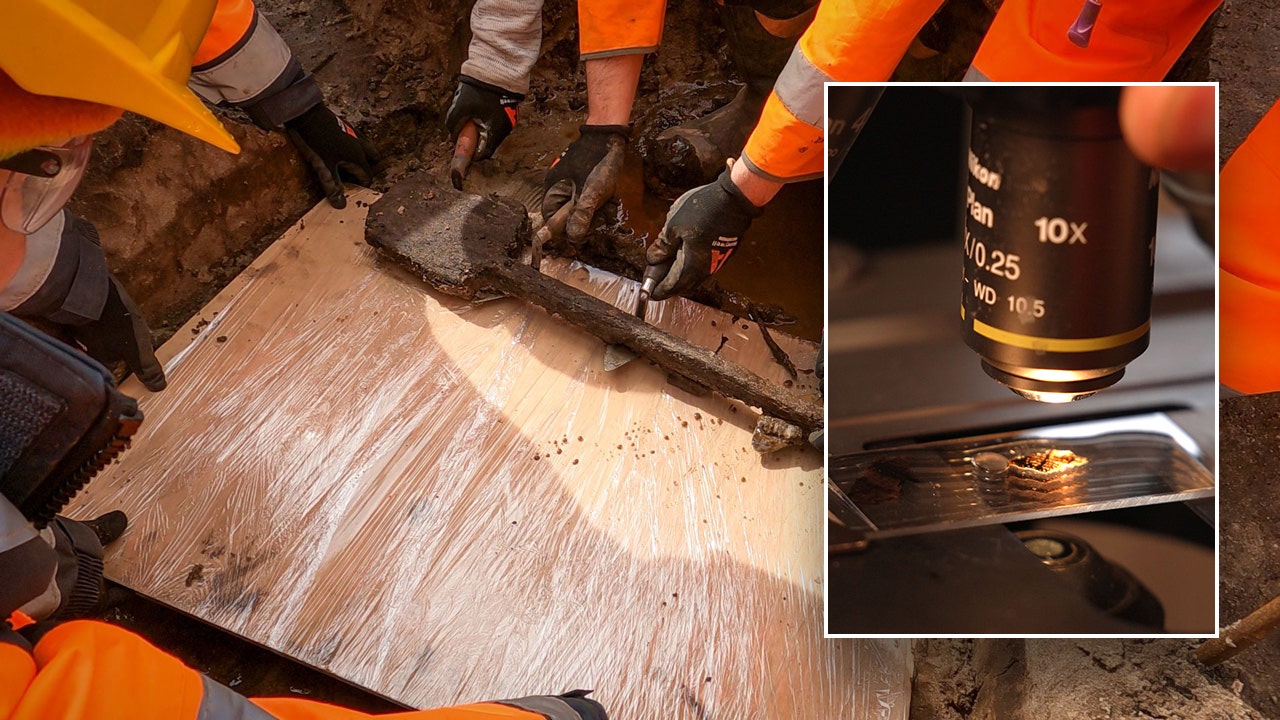An ancient tool dating back 3,500 years was discovered in the UK.

An excavation by Wessex Archaeology uncovered a wooden tool that is one of the oldest and most complete ever found in Britain.
Wessex Archaeology announced the ancient find in a news release published this week.
An Environment Agency archaeologist, Greg Chuter, stated in a video posted by Wessex Archaeology that during the initial stages of excavation near Poole Harbour at a construction site in a diverse wetlands habitat, there were only a few shards of pottery and some flint found.

The finds weren't of much significance until the wooden tool was uncovered.
The Bronze Age dating of the tool was estimated to be between 1500 and 1400 B.C., according to Ed Treasure of Wessex Archaeology, who discussed the find in a video posted by the archaeological company. The tool was radiocarbon dated to be between 3,400 and 3,500 years old.
Treasure expressed excitement about the discovery, stating, "This is an incredibly exciting moment, and we’re eager to uncover more as the process unfolds."
Over 3,000 years ago, a valuable tool was created using just a single piece of wood, according to Wessex Archaeology, and it likely took many hours to make.
Chuter stated in a news release that we are working in a broad landscape that is mostly natural with minimal signs of human activity.

"Despite the surface appearance, we've discovered evidence of human adaptations to this environment's challenges for over 3,000 years. The spade is a crucial part of the story, and as research progresses, we're excited to explore its connection to the ditch and what else it can reveal about life at Arne Moors 3,000 years ago."
These ancient wooden tools, rarely found, are unique due to their age and preservation.
The last time a Bronze Age wooden tool of similar quality was discovered in Britain was in 1875, when the Brynlow shovel was found in a Cheshire mine.

The recently discovered wooden tool by archaeologists is unique due to its excellent condition.
According to a news release from Wessex Archaeology, tools made of organic materials, such as wood, do not typically endure in the ground for extended periods.
The tool's excellent condition was due to its waterlogged environment.
The wooden tool is being conserved and studied under special care.
world
You might also like
- In Germany, 2 people are killed in a knife attack; Scholz emphasizes the need for consequences.
- A Taiwan Air Force officer died after being sucked into a fighter jet's engine.
- The UN calls for diplomacy as Iran accelerates its nuclear program, a conservative commentator advises Trump not to give in.
- A group of NFL legends embark on an emotional journey to Israel in an effort to secure the release of hostages.
- Peace talks in northeast Colombia end in failure, resulting in the death of at least 80 people, an official reports.



















